Home » Routine Eye Exams Calgary » Eye Exams for Seniors
Eye Exams for Seniors
How can I prevent eye disease?
Regular eye health exams are crucial to help prevent eye disease and to ensure that eye conditions are diagnosed and treated in a timely manner. Seniors over the age of 65 have the highest risk of vision loss and should be seen at least annually, and as frequently as three to six months if there is eye disease present.
Alberta Health covers most of the cost of eye examinations for Seniors.

How can I prevent eye disease?
Regular eye health exams are crucial to help prevent eye disease and to ensure that eye conditions are diagnosed and treated in a timely manner. Seniors over the age of 65 have the highest risk of vision loss and should be seen at least annually, and as frequently as three to six months if there is eye disease present. Alberta Health covers most of the cost of eye examinations for Seniors.

Preventative strategies are also important to prevent vision loss. Your doctor will discuss nutrition and lifestyle factors that may prevent or reduce the risk of eye disease. Modern diagnostic imaging equipment has revolutionized the way we diagnose and manage diseases like glaucoma and macular degeneration. At Mission Eye Care, we are committed to using the most modern technology for early detection and treatment of eye disease.
Age Related Eye Diseases
Cataracts in Seniors
Unfortunately, cataracts in seniors are common and most people will eventually develop cataracts as they age. A cataract is simply a clouding of the lens inside the eye that occurs with age. Cataract progression is variable, but most often starts in the 6th decade of life.
Your optometrist will monitor these changes and the rate and magnitude of your vision changes. We will refer you for surgery when vision quality reduces to the point where eyeglass correction no longer gives clear vision, or if glare becomes very noticeable. It is usually a very simple surgical procedure involving eye drops to numb the eye, followed by extraction of the cloudy lens and implantation of a foldable plastic lens implant. You can usually see very well the next day and are fully healed after a few weeks of eye drops. Since the surgeon can choose the power of your implant to match your distance correction, you may likely only need reading glasses. There are also multifocal lens implants. Ask your optometrist about these options, and any other questions regarding cataracts and surgery.
Glaucoma in Older Adults
Glaucoma is referred to as ‘the silent thief of sight,’ because this blinding disease has no outward or visual symptoms. Glaucoma in older adults is more common and it occurs when the delicate nerve fibers in the back of the eye are damaged by eye pressure over time, resulting in loss of peripheral vision, and if untreated, central vision. Because it occurs slowly, vision changes are not noticed until too late to treat. Glaucoma is a treatable disease in its early stages, which is why annual eye exams are so important.
Modern diagnostic imaging equipment can detect nerve losses as small as 5%, allowing for early treatment to reduce eye pressure and prevent further damage. Treatment is usually as simple as an eye drop every night. In more advanced cases we will refer you for laser surgery or microsurgery to further reduce eye pressure. Risk factors tend to be genetic, so regular exams are your best defense against vision loss.
Macular Degeneration (AMD)
Macular degeneration is an age-related disease that affects central vision. It is a gradual death of patches of the central retina responsible for your detail vision. It has a number of genetic as well as modifiable risk factors. Smoking, UV exposure and poor diet can contribute to progression.
Based on your risk profile, your optometrist can discuss appropriate preventative strategies such as vitamins for macular degeneration. Regular digital images of your retina are central to monitoring for progression. If you have AMD, you may be sent home with a nutrition or supplement plan, along with an “Amsler Grid” to monitor for any changes at home. Advanced or “wet” macular degeneration will cause rapid loss of vision if untreated. Quick and accurate diagnosis is essential so that treatment (usually injections) can be started.

